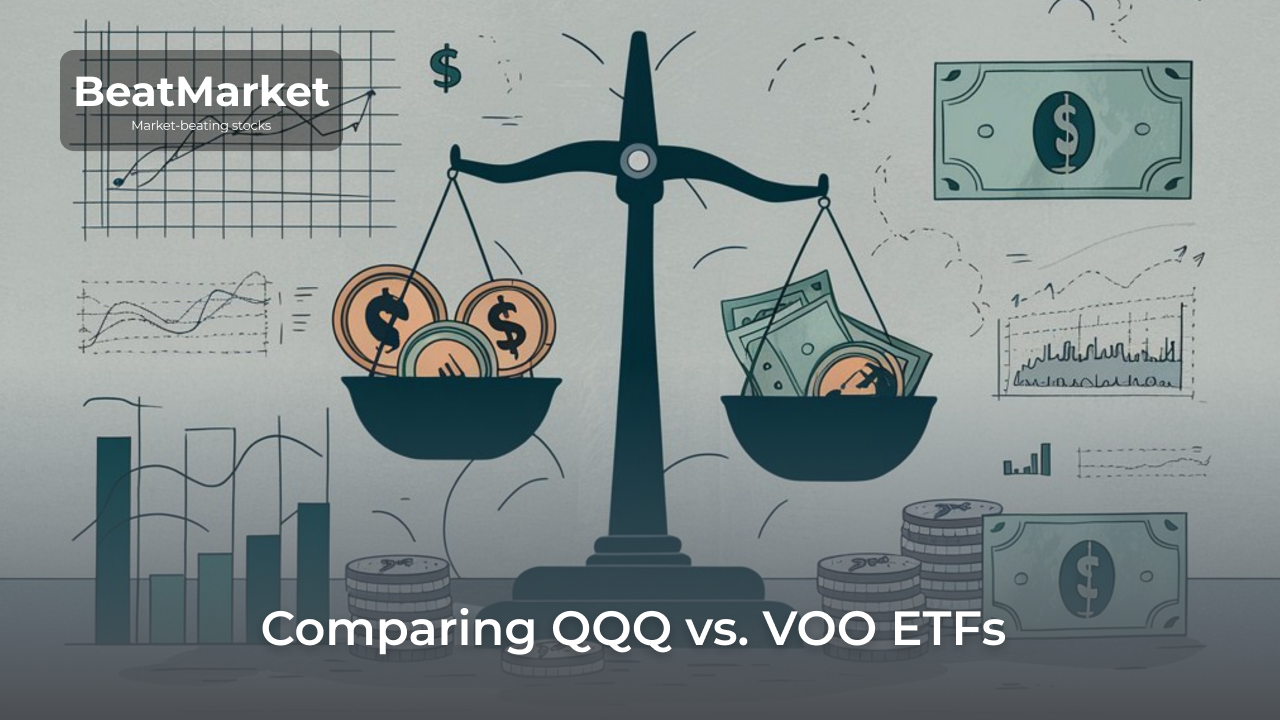Real Estate investments are a well-recognized way to increase capital and protect money from inflation in the long term. Despite popular belief, this option of investing capital is not only available to people with significant savings.
The easiest and cheapest method of making money from real estate is investing in REITs. The entry threshold is one stock, and its price can be only a few tens of dollars or less.
Table of Contents
What Is An REIT?
REITs are investment funds that generate income from real estate. The operating principle is similar to mutual funds that make money from securities. The management company sells its stocks to a multitude of investors, pools their capital and invests it in various properties.
The activities that REITs conduct can be divided into 2 types:
- property ownership and income generation through its use, renting, etc;
- financing those wishing to purchase commercial or residential real estate and investing in mortgage-backed securities.
The stocks of most REITs are available for purchase on the stock market, similar to the stocks of individual companies and ETFs.
Why were REITs created?
The first REITs were created in 1960. This year, Congress legalized this form of investor association and established requirements that real estate investment trusts must meet to be considered REITs.
The main purpose of REITs is to allow individual investors to own shares of real estate companies, just as they do with companies in any other industry.
By investing in REITs, an individual with little capital can have a diversified “portfolio” of income producing real estate that would not be available to him or her without collective investing.
How do REITs work?
Most REITs own properties and make money by renting them out. Usually one management company specializes in one type of property. These can be apartment buildings, commercial properties, etc.
Among the REIT funds are those that are engaged in more modern areas. For example, they own data centers and rent out servers.
There are also diversified REITs working with several types of properties. In any case, profits from rentals are divided between the investors.
Mortgage REITs do not own the property and therefore do not bear the costs associated with managing it. They earn from the interest on the loans. They also distribute the income to the investors.
Being a REIT allows the company to benefit from corporate tax incentives. Real estate investment trusts deduct dividends from taxable income. This allows them to pay investors a higher rate of return.
What Are The Requirements To Become An REIT?
In order to become a REIT, and with it receive tax benefits, a company must comply with a large number of rules. The main ones are:
- At least 75% of the fund’s assets are real estate investing. And no more than 25% of this amount is accounted for by unqualified securities and stocks of subsidiary REITs.
- More than 75% of its gross income is derived from real estate transactions.
- At least 90% of the income generated by the real estate owned by the fund is distributed to investors.
- It is managed by a board of directors or trustees.
- The structure of the company corresponds to a legal entity that would have corporate tax status in the absence of eligibility for REIT status.
There are also requirements for the owners of the fund’s securities. In the first year of its existence, the company must have a minimum of 100 stockholders. Five or fewer REIT participants must hold no more than 50% of the stocks.
How are REIT dividends taxed
Dividends that REIT stocks bring to U.S. citizens are taxable in a standard brokerage account under the following principle:
- In most cases, dividends are treated as ordinary income. The rate is determined depending on the total investor’s earnings and reaches 37%.
- In addition to profits earned from renting out real estate or issuing mortgage loans, REITs can distribute capital gains to the shareholders. This occurs when the fund has sold some real estate. Such amounts are taxed at a reduced rate, a maximum of 20%.
- Part of the REIT’s dividends may be designated as a return of capital. No tax is due in the year of receipt. In the eyes of the IRS, such payments reduce the investor’s costs when purchasing the stock. These payments will be reflected in the capital gains tax calculation following the sale of the securities.
REIT dividends classified as income are eligible for the Tax Cuts and Jobs Act (TCJA) tax credit. It runs through the end of 2025.
If assets are purchased as part of a retirement plan, taxes must be paid at the time the account is closed (under a classic 401(k) or IRA). Or they will not be withheld at all (if a Roth 401(k) or Roth IRA is used).
As for non U.S. residents, their dividend income from REITs is taxed at 30%.However, it is not the case for all countries that signing a Form W-8ben will help reduce the payment.
When planning REIT investments, keep in mind that not only dividends are taxed, but also gains made on stock transactions. If an investor sold his or her securities less than a year after purchasing them, his or her income will be qualified as a short-term capital gain. If a person owned the securities for more than a year, then the capital gain is a long-term gain.
How to start property investing with REITs
Buying most REIT stocks is not all that different from buying stocks in individual companies or exchange traded funds. Here’s a quick guide on how to start to invest in REITs:
- Choose a broker, taking into account commissions and minimum deposit requirements.
- Sign a contract.
- Fund your account.
- Select suitable REITs, considering their financial indicators, dividend policy, the sector they belong to.
- Submit an application to buy securities of the selected funds.
Transactions are made on the major stock exchanges. They are concluded between investors in real time, and the price of stocks changes every second.
There are also a small number of REITs where the stock must be purchased from a dealer or from the funds themselves directly at the time of their creation.
Before you start to invest in REITs, you need to know what risks are involved:
- in this asset class as a whole;
- in the real estate sector the chosen company works with.
One should also consider how regular dividend payments will affect tax liability and figure out how to evaluate the investment appeal of an individual fund.
To choose a REIT to invest in, you need to look at the following indicators:
- The ratio of company price to fund from operations (P/FFO). The classic P/E multiplier does not work well for REITs;
- Debt to EBITDA ratio.
- Payout ratio (in REITs, the amount of dividends should be compared with FFO). The index should not exceed 100%, this entails the risk of a rapid decrease in the amount of dividends.
- Dependence on economic cycles. It is determined by the type of real estate (e.g. shopping centers and hotels bring less profit during recession).
- Fair asset value. This information is generally public non traded REITs. It can be roughly calculated by dividing income by the capitalization rate. From this amount one must subtract the debts of the fund.
There are no universal numbers that would be considered ideal for a REIT. The results of an individual fund need to be compared with other competitors operating in the same sector.
What Are The Types Of REITs?
Existing REITs can be classified according to different criteria. Their wide choice allows the investor to diversify his/her investments in real estate as much as possible.
REIT types by investment holdings
The very first type of REIT classification has already been mentioned in the article. It is a categorization by source of income. Three types can be distinguished on this basis:
- Equity REITs. This is the most popular option. This includes companies that own and manage properties, earning money from rentals. They also handle all the tasks associated with maintaining the space and finding tenants. That means investing with the help of them not only requires less money, but also frees you from the problems that go along with directly owning homes or offices.
- Mortgage REITs. The activities of such companies are in part similar to those of banks. They don’t invest directly in real estate, but in mortgage loans and mortgage backed securities. They have the advantage of lower costs.
- Hybrid REITs. They are a combination of equity and mortgage REITs. Their net assets include both securities and real estate.
Find out what type of REIT you are interested in from its prospectus.
REIT types by trading status
In terms of trading status, REITs can be divided into 3 categories:
- publicly traded REITs;
- publicly non traded REITs;
- private REITs.
REIT stocks of the first type are traded on the stock exchange. Most of the existing funds fall into this category. Their advantages include not only ease of purchase, but also greater liquidity and transparency of management.
Publicly non traded REIT securities can only be purchased from brokers participating in non traded offerings. But it can also be done online. The difference is that the transaction occurs not with another private investor, as on a stock exchange, but with a professional market participant.
In addition, the stock repurchase program for publicly non traded REITs is limited. The investor faces the risk of being unable to sell his or her assets before the deadline.
Private REITs also have limited liquidity. Their key difference from the first 2 types of funds is that they are not registered with the SEC. They may also have a high entry threshold of $25,000 or more. They are intended mainly for institutional investors. Individuals can buy stocks of such a fund only after receiving the status of an accredited investor.
Different REIT Specializations
Frequently, funds are classified according to the sector their real estate assets belong to. The following REIT sectors are the most common:
- DATA- Center REITs: own data centers and other resources for data processing and storage;
- Healthcare REITs: cover a variety of properties from medical and nursing homes to wellness centers;
- Self-Storage REITs: manage storage facilities;
- Office REITs: deal with commercial real estate, primarily office buildings;
- Hotel-type REITs – their net assets are hotels;
- Industrial REITs – they own factories and various manufacturing facilities;
- Residential REITs – invest in real estate intended for permanent residence (apartment buildings or small townhouses);
- Retail REITs – they own retail premises;
- Infrastructure REITs: their assets consist of cell phone towers, etc;
- Land REITs – they make money from lots of different uses and are a great way of how to start investing in land;
- Forestry REITs: their source of income is forest land and timber processing.
Sometimes the category of “specialized” REITs is distinguished. It includes real estate investment trusts with activities that cannot be attributed to those listed above.
Are REITs Good Long-Term Investments?
To tell whether a particular asset class would be a good long-term investment is only possible considering the financial goal of the individual.
A REIT investing is a suitable option for someone who wants to earn a steady, passive income. Based on statistics, the average dividend yield of REITs is higher than that of other stocks in the SP500. Due to this, they outperform the index on the long horizon in terms of total investment profitability as well.
To choose the right real estate funds for long-term investments, experts advise to pay attention to 3 factors:
- dividend payout dynamics;
- industry (it is better to give preference to REITs with real estate investments related to growth sectors, such as data centers, medical facilities, etc.);
- the company’s credit rating.
Like any asset class, REITs investing requires diversification across sectors.
Buying REIT ETFs can be a good solution for someone who doesn’t want to spend much time choosing individual funds. These are exchange traded funds with net assets made up of stocks of multiple REITs. This kind of REIT investment allows you to bet on the real estate market as a whole and receive high dividends. The Vanguard REIT fund (VNQ) is considered the largest ETF for REITs.
However, if one’s goal is to look for assets that can show significant price growth over a long horizon, then REIT investments are unlikely to be a suitable option.
The figure below represents the dynamics of an index including 225 REIT funds. It clearly shows that this is not the type of assets that can provide stable capital appreciation.
The law requires that real estate investment trusts distribute as much as 90% of their profits to their shareholders. That is why they are extremely slow to increase their net assets. This means that there is no fundamental reason for the price to rise.
But in times of inflation, real estate funds stocks can be seen as a protective tool. Thanks to general price growth, rents become more expensive as well. And an increase in the Fed’s rate increases mortgage REITs’ profits.
The flip side is strong drawdowns in times of crisis.
Investing In REITs Vs Real Estate
Both of these financial instruments (REIT stocks and physical real estate assets) have proven to be reliable components of a diversified portfolio.
Therefore, every investor should choose the instrument that suits his or her individual situation.
REIT investing should be preferred by people who:
- do not have a lot of capital, which is sufficient at least for the first installment when buying real estate;
- want to diversify their investments as much as possible, rather than bet on a countless number of properties;
- are looking for options to maximize passive income;
- prefer to keep their money in more liquid assets.
Traditional real estate will suit people with a more active position and large capital, as well as those who want to make a quick buck on the rise in price.
Examples of REITs for Investing
Here are a few funds that may be of interest to potential REIT investors. The list below is not an individual recommendation.
The top 5 REITs that can make a diversified investment portfolio and be a good long-term investment:
- AvalonBay Communities Inc. (AVB). The company owns properties that are Class A residential homes. Its strength is its 30-year dividend growth. The current payout yield is 3.9%.
- Apollo Commercial Real Estate Finance Inc (ARI). This is a mortgage fund. It invests in loans and mortgage backed securities and operates in the commercial real estate sector. An important advantage is its high dividend yield (over 12%).
- Realty Income Corp. (O). This REIT will suit those who want to receive dividends monthly. The company has been paying consistently for more than 50 years and is in the dividend aristocrat index. The fund earns from retail, industrial and agricultural leases. The annual dividend yield is close to 5%.
- National Health Investors Inc (NHI). This healthcare-related fund made the 2023 list of fastest-growing funds. Its dividend yield is about 6.5%.
- Crown Castle Inc. (CCI). The company earns in telecommunications technology and is the beneficiary of high interest in 5G. Its current dividend yield is 5.2%.
REIT Investing Pros And Cons
REITs as a way to invest in real estate have advantages and disadvantages both compared to buying directly and investing in other asset classes.
Pros Of REIT Investing
Five advantages of buying REIT stocks over assets in the form of physical real estate assets can be considered as key ones:
- Liquidity (at least for publicly traded REITs). A stock can be bought or sold in seconds during the hours the stock exchange is open. A variant to invest in real estate will take at least a few weeks, if not months.
- Stable cash flow in the form of dividends. If an investor has only 1-2 properties and rents them out on their own, they run the risk of downtime. Diversification by REIT investing makes the payout more reliable. Unlike traditional companies, REITs cannot forgo dividends for the sake of the investment program and other expenses.
- Low entry threshold. You have to possess tens of thousands of dollars for a down payment to buy a property. And there are REIT stocks on the exchange that are worth a few dollars.
- Ample opportunities for diversification. Even a person with little capital can bet on different real estate sectors. This would not be possible with direct investments.
- No cost in time and money (REITs investor does not need to find tenants himself, maintain a good property condition, etc.).
Among the advantages of REIT investing instead of traditional companies is the good past performance of REITs. The average annual return of REITs is said to outperform the SP500 by about 1% when measured since 1972.
But past performance cannot be considered a guarantee of future returns. For example, over the 2016-2021 period, investments in the SP500 yielded a higher average annual return than buying a REIT (18.5% vs. 13.5%).
Compared to some other asset classes, REITs will have the advantage of reliable information. With the SEC requirements to disclose earnings reports and other key information, publicly traded fund stocks are considered a fairly transparent investment vehicle.
Cons Of REIT Investing
Investing in this asset class also has a few downsides. Before one decides to invest in REITs, it is important to evaluate their importance to one’s own strategy.
Disadvantages of buying REIT stocks:
- Limited quote potential. REIT stocks will not show the kind of upsurge that investors typically expect to see in growth companies.
- Susceptibility to market sentiment. During a correction, the REIT’s value falls more sharply than other securities.
- Risk of severe declines in profits, and therefore dividends, during crises due to tenant insolvency (for REITs that earn rents) and delinquencies on loan payments (for mortgage REITs).
In addition, investing in REITs for beginners is more complicated than, for example, buying an index fund. It is necessary to study the prospects of the chosen company, the share it occupies on the market, and to assess financial performance.
When buying real estate not directly but by investing through an intermediary, one faces additional counterparty risk. Real estate investment trusts do not always make a profit. The company may have business problems, then its stocks will depreciate.
Along with the advantages and disadvantages common to the entire asset class, there are peculiarities related to the type of REIT. They are listed in the table below.
| Equity REIT | Debt REIT | Hybrid REIT | |
| Advantages | Large choice of sectors for portfolio diversification.Higher potential for net asset value growth due to inflation.Lack of profitability constraints, whereas mortgage fund is limited by the level of loan rates | Lower risk of profit drop, achieved through hedging instruments.Stable income | Combine the benefits of both equity and hybrid REITs |
| Disadvantages | Higher risks and less predictable returns.Sensitivity to periods of recession.The risk of lower income due to falling solvent demand for rent.The company’s additional costs for property management, leading to lower profits. | Risks of rising interest rates or, on the contrary, early repayment of loans in case of their decrease. Binding of income to current interest rates.Borrowers’ credit risk | There is a risk of diminishing returns due to the lack of a unified strategy |
FAQ
what does reit stand for
REIT is an acronym for Real Estate Investment Trust. Such funds are companies that make their money primarily from real estate rentals or mortgages.
what is a reit stock
REIT stocks are equity securities issued by real estate investment trusts. Their purchase entitles a person to receive a part of the company’s profits in the form of dividends.
how to value a reit
In order to estimate how attractive the current REIT’s stock price is, one can divide the fund’s net asset value by the number of issued stocks. But to find out how much the real estate owned by the fund is worth, one has to make calculations on one’s own.
how to analyze a reit
Before investing in a REIT, one should study the fund’s key multiples – P/FFO, payout ratio, etc. It is also useful to assess its share of the real estate market and the future prospects of the sector it operates in.
what is the average return on a reit
The average return on REITs over the period 1972-2021 is 11.9%. But the FTSE NAREIT All Equity REITs index has fallen by 6.08% over the past 12 months.
how to start investing in property with no money
REIT investing is the easiest way to start earning money with the help of investing in real estate with minimal capital. As an alternative, use various (including 0% down payment) loan programmes, participate in real estate crowdfunding, etc.







